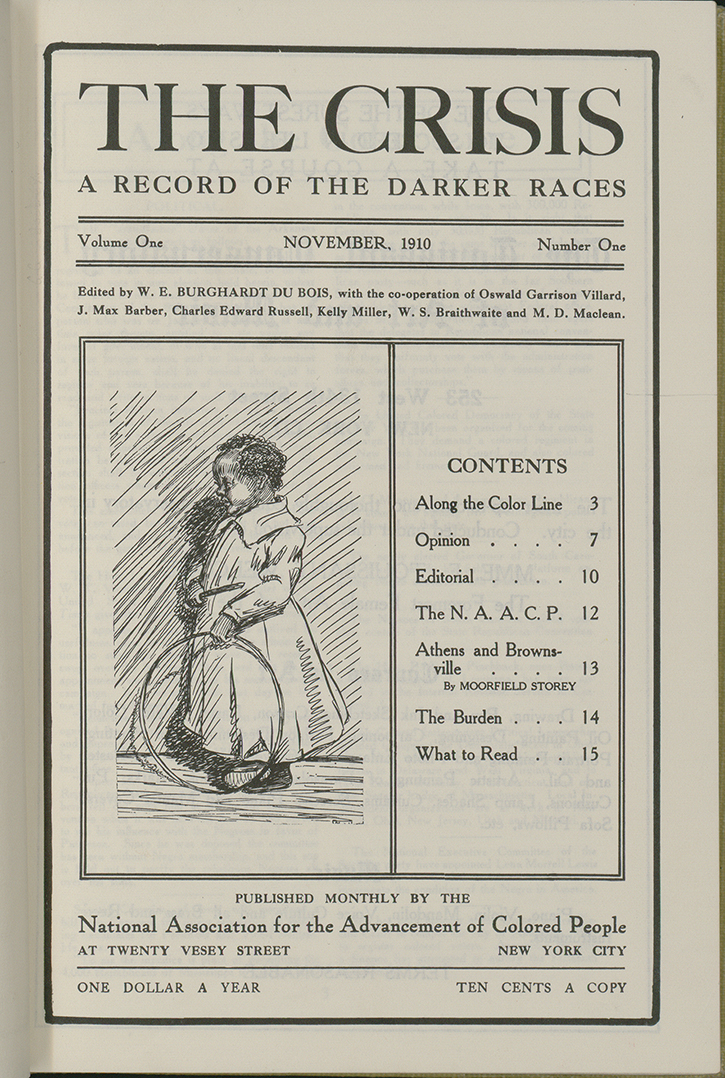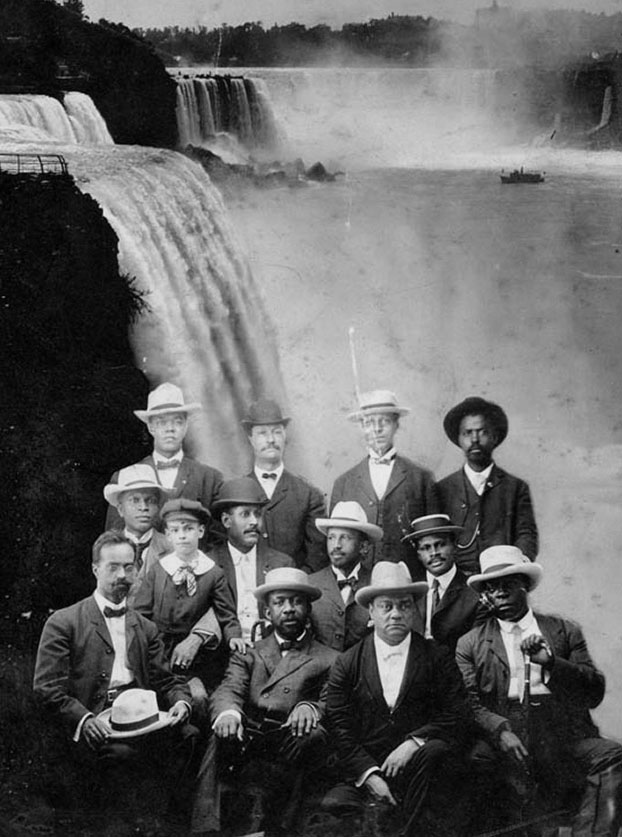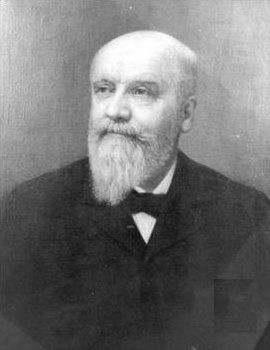|
Dusk Of Dawn
''Dusk of Dawn: An Essay Toward an Autobiography of a Race Concept'' is a 1940 autobiographical text by W. E. B. Du Bois that examines his life and family history in the context of contemporaneous developments in race relations. Preceded decades prior by the better-known ''The Souls of Black Folk'' (1903), ''Dusk of Dawn'' focuses on Du Bois's relationship with Booker T. Washington, his reasons for leaving the National Association for the Advancement of Colored People, and a new concept of race. In contrast to Washington's '' Up From Slavery'', a blend of slave narrative and autobiography, ''Dusk of Dawn'' traces the genealogy of the race concept as it affected Du Bois's life. Du Bois elucidates his theoretical writing with personal experiences, and connects those experiences to the larger historical and social phenomena he identifies as central to the function and development of race in the United States. Reviewing the book in 1940, Metz P. Lochard, editor of ... [...More Info...] [...Related Items...] OR: [Wikipedia] [Google] [Baidu] |
Chicago Defender
''The Chicago Defender'' is a Chicago-based online African-American newspaper. It was founded in 1905 by Robert S. Abbott and was once considered the "most important" newspaper of its kind. Abbott's newspaper reported and campaigned against Jim Crow-era violence and urged black people in the American South to settle in the north in what became the Great Migration. Abbott worked out an informal distribution system with Pullman porters who surreptitiously (and sometimes against southern state laws and mores) took his paper by rail far beyond Chicago, especially to African American readers in the southern United States. Under his nephew and chosen successor, John H. Sengstacke, the paper dealt with racial segregation in the United States, especially in the U.S. military, during World War II. Copies of the paper were passed along in communities, and it is estimated that at its most successful, each copy was read by four to five people. In 1919–1922, the ''Defender'' attracted t ... [...More Info...] [...Related Items...] OR: [Wikipedia] [Google] [Baidu] |
Great Barrington, Massachusetts
Great Barrington is a town in Berkshire County, Massachusetts, United States. It is part of the Pittsfield, Massachusetts, Metropolitan Statistical Area. The population was 7,172 at the 2020 census. Both a summer resort and home to Ski Butternut, a ski resort, Great Barrington includes the villages of Van Deusenville and Housatonic. History 1676–1995 The Mahican Indians called the area ''Mahaiwe'', meaning "the place downstream". It lay on the New England Path, which connected Fort Orange near Albany, New York, with Springfield and Massachusetts Bay. The first recorded account of Europeans in the area happened in August 1676, during King Philip's War. Major John Talcott and his troops chased a group of 200 Mahican Natives west from Westfield, eventually overtaking them at the Housatonic River in what is now Great Barrington. According to reports at the time, Talcott's troops killed twenty-five Indians and imprisoned another twenty. Today, a plaque for John Talcott marks t ... [...More Info...] [...Related Items...] OR: [Wikipedia] [Google] [Baidu] |
Marx
Karl Heinrich Marx (; 5 May 1818 – 14 March 1883) was a German philosopher, economist, historian, sociologist, political theorist, journalist, critic of political economy, and socialist revolutionary. His best-known titles are the 1848 pamphlet ''The Communist Manifesto'' and the four-volume (1867–1883). Marx's political and philosophical thought had enormous influence on subsequent intellectual, economic, and political history. His name has been used as an adjective, a noun, and a school of social theory. Born in Trier, Germany, Marx studied law and philosophy at the universities of Bonn and Berlin. He married German theatre critic and political activist Jenny von Westphalen in 1843. Due to his political publications, Marx became stateless and lived in exile with his wife and children in London for decades, where he continued to develop his thought in collaboration with German philosopher Friedrich Engels and publish his writings, researching in the British Museum Re ... [...More Info...] [...Related Items...] OR: [Wikipedia] [Google] [Baidu] |
The Crisis
''The Crisis'' is the official magazine of the National Association for the Advancement of Colored People (NAACP). It was founded in 1910 by W. E. B. Du Bois (editor), Oswald Garrison Villard, J. Max Barber, Charles Edward Russell, Kelly Miller, William Stanley Braithwaite, and Mary Dunlop Maclean. ''The Crisis'' has been in continuous print since 1910, and it is the oldest Black-oriented magazine in the world. Today, ''The Crisis'' is "a quarterly journal of civil rights, history, politics and culture and seeks to educate and challenge its readers about issues that continue to plague African Americans and other communities of color." History The Du Bois era Beginnings and the Du Bois era The original title of the magazine was ''The CRISIS: A Record of The Darker Races''. The magazine's name was inspired by James Russell Lowell's 1845 poem, "The Present Crisis". The suggestion to name the magazine after the poem came from one of the NAACP co-founders and noted white ab ... [...More Info...] [...Related Items...] OR: [Wikipedia] [Google] [Baidu] |
Niagara Movement
The Niagara Movement (NM) was a black civil rights organization founded in 1905 by a group of activists—many of whom were among the vanguard of African-American lawyers in the United States—led by W. E. B. Du Bois and William Monroe Trotter. It was named for the "mighty current" of change the group wanted to effect and took Niagara Falls as its symbol. The group did not meet in Niagara Falls, New York, but planned its first conference for nearby Buffalo (at the last minute, to avoid disruptions, moved across the Niagara River to Fort Erie, Ontario, Canada). The Niagara Movement was organized to oppose racial segregation and disenfranchisement. Its members felt "unmanly" the policy of accommodation and conciliation, without voting rights, promoted by Booker T. Washington. Background During the Reconstruction Era that followed the American Civil War, African Americans had an unprecedented level of civil freedom and civic participation. In the South, for the first time the for ... [...More Info...] [...Related Items...] OR: [Wikipedia] [Google] [Baidu] |
Fisk University
Fisk University is a private historically black liberal arts college in Nashville, Tennessee. It was founded in 1866 and its campus is a historic district listed on the National Register of Historic Places. In 1930, Fisk was the first African-American institution to gain accreditation by the Southern Association of Colleges and Schools (SACS). Accreditations for specialized programs soon followed. It is the oldest institution for higher education in Nashville. History Founding Fisk Free Colored School opened on January 9, 1866, shortly after the end of the Civil War. It was founded by John Ogden, Erastus Milo Cravath, and Edward Parmelee Smith of the American Missionary Association for the education of freedmen in Nashville. Fisk was one of several schools and colleges that the association helped found across the South to educate freed slaves following the Civil War. The school is named for Clinton B. Fisk, a Union general and assistant commissioner of the Freedm ... [...More Info...] [...Related Items...] OR: [Wikipedia] [Google] [Baidu] |
Democracy
Democracy (From grc, δημοκρατία, dēmokratía, ''dēmos'' 'people' and ''kratos'' 'rule') is a form of government in which the people have the authority to deliberate and decide legislation (" direct democracy"), or to choose governing officials to do so ("representative democracy"). Who is considered part of "the people" and how authority is shared among or delegated by the people has changed over time and at different rates in different countries. Features of democracy often include freedom of assembly, association, property rights, freedom of religion and speech, inclusiveness and equality, citizenship, consent of the governed, voting rights, freedom from unwarranted governmental deprivation of the right to life and liberty, and minority rights. The notion of democracy has evolved over time considerably. Throughout history, one can find evidence of direct democracy, in which communities make decisions through popular assembly. Today, the dominant form of ... [...More Info...] [...Related Items...] OR: [Wikipedia] [Google] [Baidu] |
Christianity
Christianity is an Abrahamic monotheistic religion based on the life and teachings of Jesus of Nazareth. It is the world's largest and most widespread religion with roughly 2.38 billion followers representing one-third of the global population. Its adherents, known as Christians, are estimated to make up a majority of the population in 157 countries and territories, and believe that Jesus is the Son of God, whose coming as the messiah was prophesied in the Hebrew Bible (called the Old Testament in Christianity) and chronicled in the New Testament. Christianity began as a Second Temple Judaic sect in the 1st century Hellenistic Judaism in the Roman province of Judea. Jesus' apostles and their followers spread around the Levant, Europe, Anatolia, Mesopotamia, the South Caucasus, Ancient Carthage, Egypt, and Ethiopia, despite significant initial persecution. It soon attracted gentile God-fearers, which led to a departure from Jewish customs, and, a ... [...More Info...] [...Related Items...] OR: [Wikipedia] [Google] [Baidu] |
Metz P
Metz ( , , lat, Divodurum Mediomatricorum, then ) is a city in northeast France located at the confluence of the Moselle and the Seille rivers. Metz is the prefecture of the Moselle department and the seat of the parliament of the Grand Est region. Located near the tripoint along the junction of France, Germany and Luxembourg,Says J.M. (2010) La Moselle, une rivière européenne. Eds. Serpenoise. the city forms a central place of the European Greater Region and the SaarLorLux euroregion. Metz has a rich 3,000-year history,Bour R. (2007) Histoire de Metz, nouvelle édition. Eds. Serpenoise. having variously been a Celtic ''oppidum'', an important Gallo-Roman city,Vigneron B. (1986) Metz antique: Divodurum Mediomatricorum. Eds. Maisonneuve. the Merovingian capital of Austrasia,Huguenin A. (2011) Histoire du royaume mérovingien d'Austrasie. Eds. des Paraiges. pp. 134,275 the birthplace of the Carolingian dynasty,Settipani C. (1989) Les ancêtres de Charlemagne. Ed. Soci� ... [...More Info...] [...Related Items...] OR: [Wikipedia] [Google] [Baidu] |
Autobiographical
An autobiography, sometimes informally called an autobio, is a self-written account of one's own life. It is a form of biography. Definition The word "autobiography" was first used deprecatingly by William Taylor in 1797 in the English periodical ''The Monthly Review'', when he suggested the word as a hybrid, but condemned it as "pedantic". However, its next recorded use was in its present sense, by Robert Southey in 1809. Despite only being named early in the nineteenth century, first-person autobiographical writing originates in antiquity. Roy Pascal differentiates autobiography from the periodic self-reflective mode of journal or diary writing by noting that " utobiographyis a review of a life from a particular moment in time, while the diary, however reflective it may be, moves through a series of moments in time". Autobiography thus takes stock of the autobiographer's life from the moment of composition. While biographers generally rely on a wide variety of documents an ... [...More Info...] [...Related Items...] OR: [Wikipedia] [Google] [Baidu] |
Autobiography
An autobiography, sometimes informally called an autobio, is a self-written account of one's own life. It is a form of biography. Definition The word "autobiography" was first used deprecatingly by William Taylor in 1797 in the English periodical ''The Monthly Review'', when he suggested the word as a hybrid, but condemned it as "pedantic". However, its next recorded use was in its present sense, by Robert Southey in 1809. Despite only being named early in the nineteenth century, first-person autobiographical writing originates in antiquity. Roy Pascal differentiates autobiography from the periodic self-reflective mode of journal or diary writing by noting that " utobiographyis a review of a life from a particular moment in time, while the diary, however reflective it may be, moves through a series of moments in time". Autobiography thus takes stock of the autobiographer's life from the moment of composition. While biographers generally rely on a wide variety of documents an ... [...More Info...] [...Related Items...] OR: [Wikipedia] [Google] [Baidu] |

.jpg)






